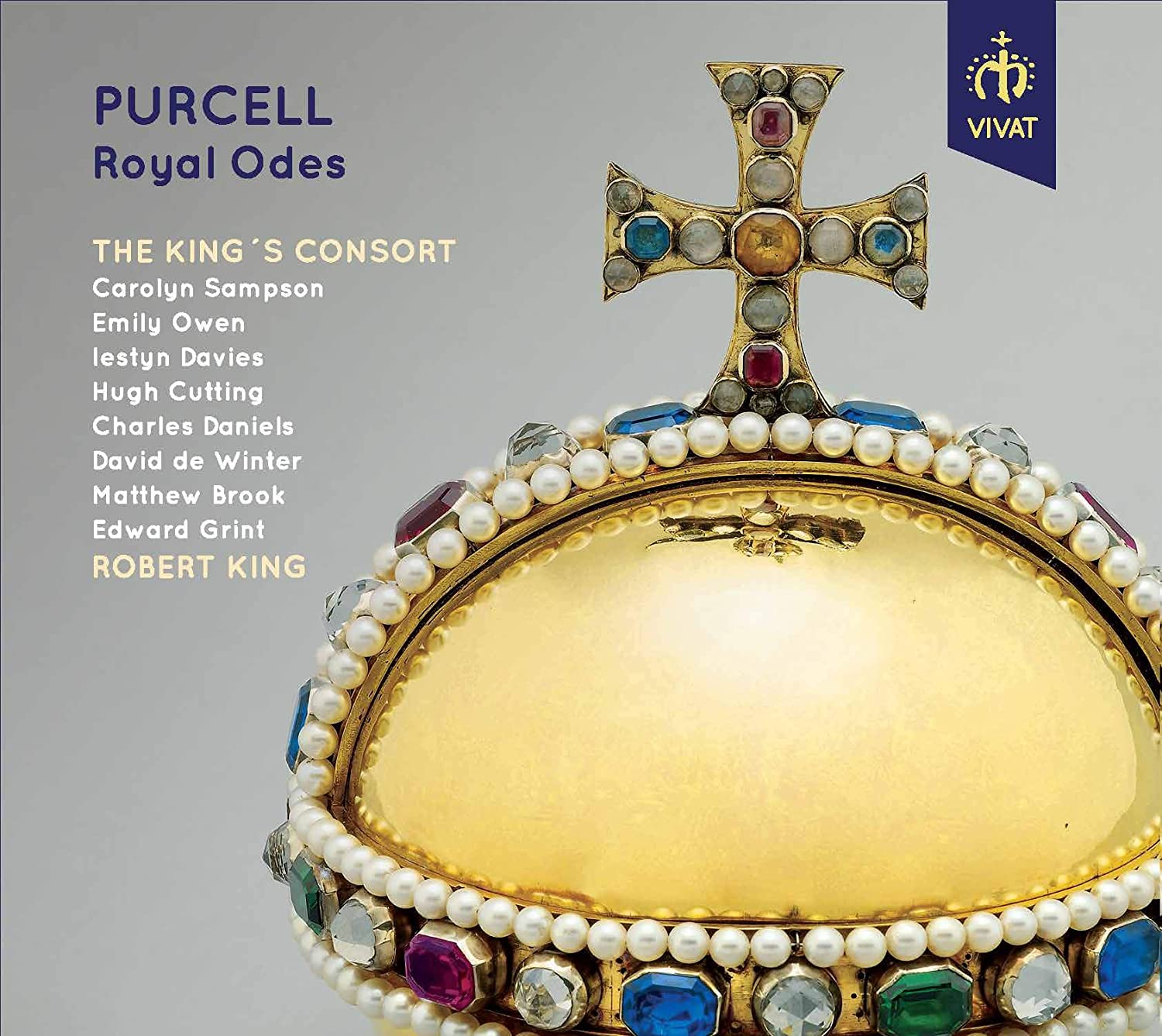The King’s Consort, Robert King
81:12
Vivat 121
Click HERE to buy this on amazon.co.uk
Those that follow EMR are unlikely to need reminding of Robert King’s devotion to the music of Purcell, with which, as he reminds us in his touching notes, he has been involved for nearly 50 years. Neither will enthusiasts need their memories jogged to recall the valuable complete series devoted to both the sacred music and the secular odes some thirty years ago. The present generously filled CD revisits three of the royal odes: ‘Why, why are all the Muses mute?’ (a welcome ode for King James II from 1685), and two odes celebrating the birthday of Purcell’s much-loved Queen Mary, ‘Now does the glorious day appear’ (1689) and ‘Welcome, welcome, glorious morn’ (1691).
However, the performances are far from being a conventional remake. They were made in September and October 2020 under conditions dictated by the Covid-19 pandemic and as such have a special feel to them. Perhaps the first thing to say is that despite social distancing the sound obtained in the Fairfield Halls in Croydon is of outstanding quality, with splendid balance to the ensemble singing and excellent detail in the orchestral playing. Although King refers to what has been learned in the period since the Hyperion recordings as regard to such matters as vocal and instrumental forces, they are in fact virtually identical. That’s to say two voices per part for the choruses matched by single string parts and continuo plus a pair of oboes and trumpets in the 1691 ode. The vocal ensemble is a happy mix of singers King has long worked with, including the inimitably stylish tenor Charles Daniels, who participated in several of the original Hyperion series, and soprano Carolyn Sampson, along with singers of the younger generation. Among them high tenor David de Winter makes a favourable impression, giving the unexpectedly subdued air that opens the 1685 ode – there is uniquely no overture – a fine sense of line delivered with excellent diction.
King’s notes don’t, of course, fail to draw the analogy of Purcell himself having lived through a time of plague in London (1665-6), but perhaps some find it surprising his suggestion that Purcell’s music was throughout his life pervaded by ‘a sense of melancholy, of fading glory’. This is borne out by performances that reflect a maturity and sense of poise that would have been foreign to the ebullient King of earlier days. I don’t think it too fanciful to find here a valedictory sense of thoughtfulness that reflects the time in which the performances were recorded. That is not in any way to suggest they have been overlaid by unwanted sentiment or self-indulgent tempi. Comparison with the earlier recordings reveals that tempos are in fact very similar and indeed in the case of ‘Welcome, welcome’, resplendent with its addition of pairs of oboes and trumpets, the overall timing was quicker in 2020 than it was in 1991.
In the face of such satisfyingly integrated performances, it seems invidious to single out special moments, but I can’t resist drawing attention to one or two. In the King James welcome ode countertenor Iestyn Davies produces a ravishingly lovely ‘Britain, thou now art great’, bringing an irresistible lilt to the air, the singing complemented by exquisitely nuanced string playing. In the same ode, Daniels captures with exceptional insight the pensive autumnal glow of the final air, ‘O how blest is the isle’. The 1689 ode sees Davies and Daniels come together with Sampson as a ‘dream team’ for the finely wrought trio, ‘Our dear religion’, while in the more brilliant 1691 birthday ode Sampson is outstanding in the recitative and air, ‘My prayers are heard … I see the round years’, one of the finest sections of the ode, succeeded by a splendid chorus making effective use of one of Purcell’s favourite devices, the echo.
The effervescence of the younger Robert King cannot be gainsaid in these celebratory works, but the more reflective King’s ‘Purcell in a time of Plague’ has its own distinctive qualities and demands to be heard by all for whom our greatest composer is special.
Brian Robins
